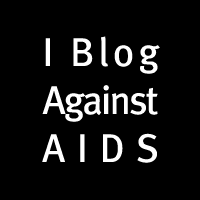08 February 2006
07 February 2006
Sunburned but smiling
We packed so much into the past few days that it's gone by in a total blur. On Sunday we walked round the Abuko nature reserve - before we walked in our taxi driver asked if we wanted him to drive round to the exit to pick us up or if we wanted to walk back to the entrance - we foolishly told him we were perfectly capapble fo walking back and set off. Gambia is really famous for the variety of birds here, and we saw some really beautiful ones, but were much more impressed by the massive crocodiles along the banks. At about the 33rd marker I started to feel a bit tired and asked our guide how much further the walk was - he laughed and said there were 107 markers till the end! We kept going and at about the 1/2 way point stopped at the animal rehab house, had a drink and snapped a few pics of the alarmingly close hyena family. The last 1/2 I walked fast to reach the end as soon as possible, and have never been so happy as to see our taxi driver waiting patiently for us. Maz and I jumped in and were happy to be off when we were told the Nigerian president was about to pass and we couldn't leave until he had done so... about 20 minutes later a parade of cars filed past and we were finally on our way.
We met up with the Gambian family of one of Maz'z coworkers on Sunday evening and they have been taking brilliant care of us - guiding us to places we never would have found on our own, explaining the country from a locals point of view and even feeding us a wonderful Gambian dinner of fish, plassus and rice last night. They live so far away from where we are staying on the coast that it took a couple of hours by gellah-gellah to get back last night, but it was a much more relaxing trip than the dalla-dallas of Tanzania (for a start everyone had their own seat!).
Today I decided to take a break from all the hectic site-seeing to spend some time on the beach and am decidedly pink as a result!
Posted by
Natasha
at
2/07/2006 05:51:00 pm
2
comments
![]()
Posted by
Natasha
at
2/07/2006 02:40:00 pm
0
comments
![]()
04 February 2006
Gambia Maybe Time
Hello from hot and sunny Kotu Beach, the Gambia. Maz and I left the absolutely freezing streets of London yesterday morning thinking it wouldn't be possible to survive in temperatures any colder and spent the evening walking a long the beach barefoot. The cold that I had when I left England has almost dissappeared with the warm weather.
We had heard quite a lot about sex tourism here before we came (as has just about everyone it seems!), though watching the middle age women with boys 1/2 their age is a sight that can only really be seen to be believed. Thanks to this wonderful practice, we've found it completely impossible to walk anywhere unaccompanied by 'bumsters' who seem harmless but are rather irritating. This morning we went to the markets in Serrekundu (the largest city in the Gambia) and spent an hour or so walking round with a constant companion telling us "relax and take it easy, I'm not hassling you," If that is so, I dread to think what hassling is!
Now that we've missed the peak sun hours, we'll spent the afternoon lounging on the beach and relaxing :)
Posted by
Natasha
at
2/04/2006 12:54:00 pm
0
comments
![]()
19 January 2006
Some good news in the new year?
Today Justin Gillis wrote that a Once-a-Day AIDS Pill Could Be Ready Soon in the Washington Post. This is, ofcourse, good news. Having to take only one pill a day means treatment regimens are easier to maintain, patients won't get as sick and drug resistant strains are less likely to develop. Though "[t]he pill won't be ideal for women of child-bearing age, since it may cause birth defects." The group most affected by HIV/AIDS worldwide, won't be able to use this new drug. The eternal cynic in me noticed this sentence:
"With nearly two dozen AIDS drugs on the market, with many more on the way, and with the patients taking them expecting to live out normal life spans, companies say devising convenient regimens has become a make-or-break problem."and it made me wonder: isn't this the perfect market for drug companies? I know it's been said before, but an ever-increasing population forced to maintain drug regimens for their entire natural life, it all seems too perfect. What incentive do pharmaceutical companies have to develop a cure for AIDS? No matter how hard we try to treat the rapidly multiplying numbers of people affected by HIV/AIDS in developing countries, until there is a cure the poorest will continue to have far higher HIV infection and AIDS mortality rates.
The Post also reports that the NIH Halts International AIDS Study testing whether breaks from anti-retroviral drugs had an effect on drug effectiveness. Unsurprisingly, the trial "showed that patients had twice the risk of dying or developing clinical AIDS if they took breaks from the drug cocktails, called highly active antiretroviral therapy." This has major implications for donor agencies funding treatment in developing countries. While there are now several programmes offering developing countries assistance for ART (anti-retroviral treatment) that are expected to increase their investment in the coming years, it is crucial that these programmes don't, as all too often happens, have their funding cut in future budgets. Pressure must be kept up to ensure that the Global Fund, the WHO's 3*5, and other AIDS treatment programmes are maintained as even short breaks in treatment can increase the development of drug resistant HIV strains, cause earlier AIDS onset and more illness for those with HIV/AIDS.
Posted by
Natasha
at
1/19/2006 12:26:00 pm
1 comments
![]()
08 December 2005
African Women Confront Bush’s AIDS Policy
Yifat Susskind of Foreign Policy in Focus writes:
...[G]rowing numbers of people around the world know that sub-Saharan Africa is the epicenter of the AIDS pandemic: three-quarters of AIDS deaths worldwide have been in Africa, and today the continent is home to nearly two-thirds of all of those who are HIV-positive (more than 25 million people). Fewer people know that most Africans living with HIV/AIDS are women, and that young women are now being infected at a rate three to four times higher than young men. For many, this information is absorbed through a mesh of stereotypes that make human misery
seem like a natural condition of life in Africa .
But while AIDS—like the litany of this year's natural disasters—may have originated in nature, the magnitude of its destruction is a man-made catastrophe. Consider the following:AIDS, unjust economic policies, and women's inequality are mutually reinforcing crises; combating any one of these requires addressing them together. But too often, public health programs, government policies, and even activists compartmentalize issues, missing critical points of inter-connection that are keys to effecting change.
- Since the 1980s when AIDS first emerged, the United States has demanded “economic austerity measures” in impoverished countries. In Africa , these policies cut national health budgets in half just when public health systems needed to be ramped up to combat AIDS. Today, the pandemic is the single
greatest obstacle to economic development in Africa .- To bolster already-huge profits of U.S. pharmaceutical companies, the Bush administration has blocked the sale of affordable generic drugs that have saved millions of lives in rich countries.
- Women are made particularly vulnerable to HIV infection because they are denied the rights to refuse sex or insist on condom use. As the majority of those living in poverty and the poorest of the poor, women are more likely to contract HIV and more likely to develop symptoms of AIDS soon after they are infected.
Posted by
Natasha
at
12/08/2005 01:48:00 pm
1 comments
![]()
02 December 2005
AIDS in DC
The press coverage yesterday was depressingly scarce. 18 years of World AIDS Days and I guess everyone just doesn't care anymore.
Today the Washington Post's Darragh Johnson talked about the Whitman Walker clinic's mobile testing unit that was out on the streets yesterday. Despite the fact that:
Washington's rate of infection is alarmingly high -- at Whitman-Walker's clinic in Southeast the positive test rate is 6 percent -- and it's not going down. In 2001, in cities with more than a half-million residents, the relative numbers of Washingtonians infected with AIDS outpaced the country's other big cities, according to a thick report on "HIV/AIDS in the Nation's Capital," released in August by D.C. Appleseed Center for Law and Justice, a public interest organization.
So. To recap. Each of the numbers below represents the number of AIDS cases per 100,000 residents in 2001:
Washington -- 119
Baltimore -- 117
San Francisco -- 67
New York -- 64
Philadelphia -- 58
In 2003, two years later, D.C.'s number had jumped to 170.
(Johnson [2005] "In a City With A Big Problem, Trying to
Turn A Corner on AIDS" The Washington Post 2Dec05 )
Noone wants to get tested. The mobile testing unit spent the day hanging out and encouraging people to come and find out their status, but to little effect.
*
Some good news: Yesterday the Guardian reported:
Europe, led by the UK, last night signalled a major split with the United States over curbing the Aids pandemic in a statement that tacitly urged African governments not to heed the abstinence-focused agenda of the Bush administration.
(Bosely [2005] "Europeans reject abstinence message
in split with US on Aids " The Guardian 1Dec05)
Posted by
Natasha
at
12/02/2005 12:05:00 pm
0
comments
![]()
28 November 2005

One of the many canals in Amsterdam, taken by the lovely Maz (while I stayed in and wrote my paper!) 
Posted by
Natasha
at
11/28/2005 07:55:00 pm
0
comments
![]()
Patti Smith & other Adventures in Amsterdam
On Thursday I arrived in Amsterdam... and wow. This just really seems to be the city of the future. It's kind of hard to believe that the Dutch have got it so right... I mean, what on earth are we doing in the rest of the world? Granted, I've only been here a few days, but the overall impression is one of serenity and efficiency. Public transportation is great, police presence verging on nill, and despite what you would think, no public 'scenes' so endemic of US/UK societies on a weekend.
Maz and I have had a wonderful time relaxing and catching up the past few days. On Saturday we went to see Patti Smith at Paradiso which is a converted church and must be the coolest place to see a gig ever. I've never really listened to Patti much, but she was incredible live. Despite being a living legend, she has to be the most unaffected musician ever (and yeah, I'm including all the musicians I know that aren't anywhere close to being a legend!).
The hostel is a bit dull, but clean and warm (and at 27 I think maybe that should be my main criteria for hostelling). The red light district was a strange sight, the city goes from picturesque to ummmm pornographic in a few steps. But crime seems to be a lot lower and we did find our fave hang out spot of the weekend slap bang in the middle (just in case you're concerned, I am leaving with far less money than I arrived with!).
I don't think I've ever had such a great weekend :)
Posted by
Natasha
at
11/28/2005 03:35:00 pm
0
comments
![]()
23 November 2005
Morality and AIDS
It has been far too long since I last posted... somehow every day life never seems to compare to the urgency and immediacy of travelling. I always find I am thinking much more deeply about things and write far more in a new environment than I do at 'home' - wherever that may be at the time.
I just had an email asking me if I didn't think 'moral issues' were at the root of the AIDS epidemic in Africa. No - I don't. I think the root cause of AIDS is a particularly clever 'germ' that has learned to spread through sex (or human reproduction) something we humans are highly embarrassed about and something we will continue to do, furtively and otherwise, until we are extinct. I'm not a biologist and can't document the way the virus has evolved and spreads biologically, but would recommend reading Guns, Germs and Steel to see how germs develop and AIDS in the 21st Century for more on the biological transmission of the virus.
I can tell you that women are much more vulnerable to infection (both biologically and socio-economically) and that poverty is a major factor in the spread of HIV/AIDS. Conditions of poverty lead to poor nutrition, higher exposure to disease and suppressed immune responses. A compromised immune system is much less able to resist the attack of the HIV virus. Poverty also decreases options. Faced with the choice between starvation and possible illness later, most people concentrate on short-term survival. This pushes millions of women around the world into sex work, and millions more into dependent relationships.
The reason why Africa, as opposed to say the US, is the most heavily affected region is due to many, many reasons, but not 'morals.' Probably the two most important are the level of extreme poverty (in sub-Saharan Africa, 83% of children are severely deprived of at least one basic human need: food, safe drinking water, sanitation, health care, education, shelter) and that health care is minimal and treatment rare. Sub-Saharan Africa has the highest percentage of untreated STI's: it has been proven that untreated STI's increase transmission risk. HIV is far more likely to be transmitted just after infection and in the final stages of the disease (when viral loads are high), treatment reduces viral loads and thereby decreases new infections. Treatment also acts as a deterrant by reducing stigma and encouraging testing; those who have an incentive to protect themselves if HIV-negative and the knowledge to protect others if HIV-positive.
"As so many of our patients have noted, what is the motivation for learning one’s serostatus [HIV status] when there is no possibility of being treated for opportunistic infections or of access to prevention of mother-to-child transmission during pregnancy, much less of being treated with antiretrovirals when needed?"It is noteworthy that the most common AIDS-related assistance to heavily burdened countries has consisted of education about the disease and condom distribution to prevent HIV transmission. Many of those at greatest risk know that HIV is a sexually transmitted disease and that condoms can prevent transmission.
(Castro and Farmer (2005) “Understanding and Addressing AIDS-Related Stigma: from Anthropological Theory to Clinical Practice in Haiti” American Journal of Public Health Vol. 95, No.1 pp.53-59)
Their risk stems less from ignorance and more from the precarious situations in which hundreds of millions live; gender inequality adds a special burden, and is the main reason that, globally, HIV incidence is now higher among women than among men.
(Farmer et al., (2001) “Community Based Approaches to HIV Treatment in Resource-Poor Settings” The Lancet Vol. 358 pp.404-409)
The prevention strategies currently used will not stop HIV incidence or AIDS deaths among the poorest populations, especially among poor women. It is time to focus attention on treating the millions already affected, both as a moral necessity and a wise investment in the future. Treatment, both antiretroviral and for opportunistic infections, must become integrated in the fight to combat HIV/AIDS in all countries and in all communities.
Posted by
Natasha
at
11/23/2005 05:57:00 pm
0
comments
![]()














